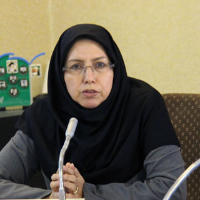Constructing, investigating reliability and validating of the diagnostic scale for non-verbal learning disorders
The purpose of this study was constructing, investigating reliability and validating of the diagnostic scale for non-verbal learning disorders. The research method was descriptive-survey. The first statistical population consisted of all male and female students of the elementary schools in Alborz Province, who were studying over the educational year 2017-2018 and the second statistical population consisted of all male and female students of the elementary schools in Alborz Province, who were diagnosed as students with learning disorders in educational year 2017-2018 and were undergoing treatment and rehabilitation in the centers for the treatment of learning disorders. The sample from the first statistical population consisted of 480 elementary school students from the first to sixth grade in Alborz Province, selected by the multistage cluster sampling method; and were assessed with The researcher-made scale for non-verbal learning disorders and Perceptual reasoning subtest from Wechsler Intelligence Scale for Children - Fourth Edition (WISC-IV). The sample from the second statistical population consisted of 24 students from the centers for the treatment of learning disorders in the Nazarabad city that were selected by the multistage cluster sampling method; and were assessed with the researcher-made scale for non-verbal learning disorders. The reliability of the comprehensive scale was obtained 0.81 by calculating the Cronbach's alpha and the sensitivity factor, specificity and the best clinical cut-off point were obtained 0.71, 0.44 and 63.5, respectively. The results confirmed formal validity, content validity, concurrent validity, diagnostic validity, construct validity and reliability of the researcher-made scale. According to the findings of the study, it was concluded that the researcher-made scale has sufficient validity and reliability and can be used as a valid tool for the diagnosis of non-verbal learning disorders in the elementary school.
-
The Effect of Educational Leadership Based on Emotional Intelligence on Self-control and Classroom Management Style in Elementary School Teachers
Mojtaba Sharifidaramadi *,
Journal of Educational Leadership Research, Summer 2025 -
Development and Validation of the Educational Package of the Cognitive Strategy of Emotion Regulation based on the Theory of Mindfulness and its Effectiveness on the Prosocial Behavior of Male High School Students
Esmaeil Sadipour, Alimohammad Falahati Oushibi *, Soghra Ebrahimi Ghavam, Hasan Asadzade, Kamran Sheivandi Cholicheh
Research in Clinical Psychology and Counseling, Autumn and Winter 2025 -
A Comparison of the Effectiveness of Social-Emotional Cooperative Learning and Mindfulness Training on Improving Social Problem Solving Skills
Malihe Ahmadi *, Kianoosh Hashmian, Fariborz Dortaj,
Educational Psychology, -
Development and Validation of the Positive School Orientation Questionnaire
Malihe Ahmadi *,
Educational Measurement,



